This website uses cookies so that we can provide you with the best user experience possible. Cookie information is stored in your browser and performs functions such as recognising you when you return to our website and helping our team to understand which sections of the website you find most interesting and useful.

E-mobility: Implications for the distribution grid
- E-mobility, Power system planning
This course covers key topics in e-mobility charging infrastructure and the integration of electric vehicles (EVs) into the grid. Participants will learn about the impact of the growing EV fleet on grids and their operators.
€240 excl. VAT
- 19% VAT: private customers resident in the EU, companies/ public organisations and NGOs in Germany
- No VAT: private customers resident outside the EU, companies/ public organisations and NGOs outside Germany
1 month
About 30 hours
English
Online
01/07/2023
03/07/2023
Description
Description
To sufficiently address the climate crisis, all sectors must achieve net zero emissions. In the transport sector, electrification is the fastest and most efficient way to realise this goal. Efforts in the transport sector are being made to accelerate the integration of electric mobility (e-mobility) into the grid as the global energy system is facing fundamental changes. Namely, the increasing share of volatile renewable energy as part of the power mix requires grid flexibility and reliability.
Electric vehicle (EV) batteries can offer this flexibility to grid operators, and this can facilitate the integration of renewable energy sources. While the integration of e-mobility into the transport sector presents challenges for grid operators, it also offers great opportunities. Grid operators should be aware of these challenges and opportunities, so that they can act quickly and efficiently.
This course is designed to address these key topics and issues by covering the most important aspects of e-mobility, charging infrastructure, and the integration of electric vehicles (EVs) into the electric grid as well as their implications for grid operators.
The topics covered are:
- Introduction to e-mobility
- Charging infrastructure
- Grid integration of e-mobility challenges and opportunities
- Charging strategies
- Differences between urban and rural areas
- Recommended courses of action for system operators
Receive a reminder one week before the registration deadline.
Learning Objectives
Learning objectives
After completing this course, participants will be able to:
- describe how an electric drivetrain works and what types of charging infrastructures are necessary for different applications;
- recognise the challenges and opportunities associated with the integration of electric vehicles (EVs) into the grid;
- differentiate between rural and urban mobility in terms of their implications for the grid; and
- actively support the integration of electric vehicles (EVs) into the grid.
Target Groups
Target groups
The course is designed for people who would like to get an overview on e-mobility and its charging infrastructure as well as how it affects the distribution grid.
RENAC certificate upon successful completion of the course for participants who score 70% or higher on the exam.
Features
Features
Flexibility to study at any time and from any location
Moderated discussion forum for students
Multimedia learning materials
RENAC certificate upon successful completion of the training
We offer discounts for our alumni, group bookings, and multiple purchases. Contact us for further details.
Contact with learning facilitators
Self-assessments
Certification
Additional Information
Lecturers
Lecturers
There aren't any lecturers in this training.
-
Description
-
Learning Objectives
-
Target Groups
-
Features
-
Lecturers
Description
To sufficiently address the climate crisis, all sectors must achieve net zero emissions. In the transport sector, electrification is the fastest and most efficient way to realise this goal. Efforts in the transport sector are being made to accelerate the integration of electric mobility (e-mobility) into the grid as the global energy system is facing fundamental changes. Namely, the increasing share of volatile renewable energy as part of the power mix requires grid flexibility and reliability.
Electric vehicle (EV) batteries can offer this flexibility to grid operators, and this can facilitate the integration of renewable energy sources. While the integration of e-mobility into the transport sector presents challenges for grid operators, it also offers great opportunities. Grid operators should be aware of these challenges and opportunities, so that they can act quickly and efficiently.
This course is designed to address these key topics and issues by covering the most important aspects of e-mobility, charging infrastructure, and the integration of electric vehicles (EVs) into the electric grid as well as their implications for grid operators.
The topics covered are:
- Introduction to e-mobility
- Charging infrastructure
- Grid integration of e-mobility challenges and opportunities
- Charging strategies
- Differences between urban and rural areas
- Recommended courses of action for system operators
Receive a reminder one week before the registration deadline.
Learning objectives
After completing this course, participants will be able to:
- describe how an electric drivetrain works and what types of charging infrastructures are necessary for different applications;
- recognise the challenges and opportunities associated with the integration of electric vehicles (EVs) into the grid;
- differentiate between rural and urban mobility in terms of their implications for the grid; and
- actively support the integration of electric vehicles (EVs) into the grid.
Target groups
The course is designed for people who would like to get an overview on e-mobility and its charging infrastructure as well as how it affects the distribution grid.
RENAC certificate upon successful completion of the course for participants who score 70% or higher on the exam.
Features
Flexibility to study at any time and from any location
Moderated discussion forum for students
Multimedia learning materials
RENAC certificate upon successful completion of the training
We offer discounts for our alumni, group bookings, and multiple purchases. Contact us for further details.
Contact with learning facilitators
Self-assessments
Certification
Additional Information
Lecturers
There aren't any lecturers in this training.
Testimonials
Interested in RENAC trainings?

Type of training:
Next Date:
Duration:
Fee:
Type of training:
Fee:

Type of training:
Next Date:
Duration:
Fee:

Type of training:
Next Date:
Duration:
Fee:

Type of training:
Next Date:
Duration:
Fee:

Type of training:
Next Date:
Duration:
Fee:

Type of training:
Next Date:
Duration:
Fee:

Type of training:
Next Date:
Duration:
Fee:

Type of training:
Next Date:
Duration:
Fee:

Type of training:
Next Date:
Duration:
Fee:

Type of training:
Next Date:
Duration:
Fee:

Type of training:
Next Date:
Duration:
Fee:
© 2024 | Renewables Academy (RENAC) AG




